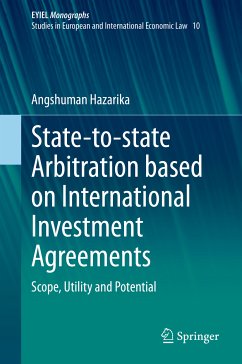The book's main conclusion is that state-to-state arbitration may be used as an alternative to currently popular investor-state arbitration by resolving procedural hurdles which impede its acceptance. It becomes more important with the removal of investor-state arbitration as an option in certain recent IIAs, which then elevates state-to-state arbitration as the sole option for binding third party dispute resolution in the treaty. Even then, it is unlikely to replace investor-state arbitration completely due to its inherent shortcomings, such as the risk of re-politicising disputes and a lack of direct control over the process for the affected investors. Nevertheless, the availability of an alternative forum will benefit all parties involved, as they will no longer be wholly dependent on investor-state arbitration, which can be affected by events such as denunciation from the ICSID Convention or the refusal of a host state to enforce an arbitration award.
Dieser Download kann aus rechtlichen Gründen nur mit Rechnungsadresse in A, B, BG, CY, CZ, D, DK, EW, E, FIN, F, GR, HR, H, IRL, I, LT, L, LR, M, NL, PL, P, R, S, SLO, SK ausgeliefert werden.









